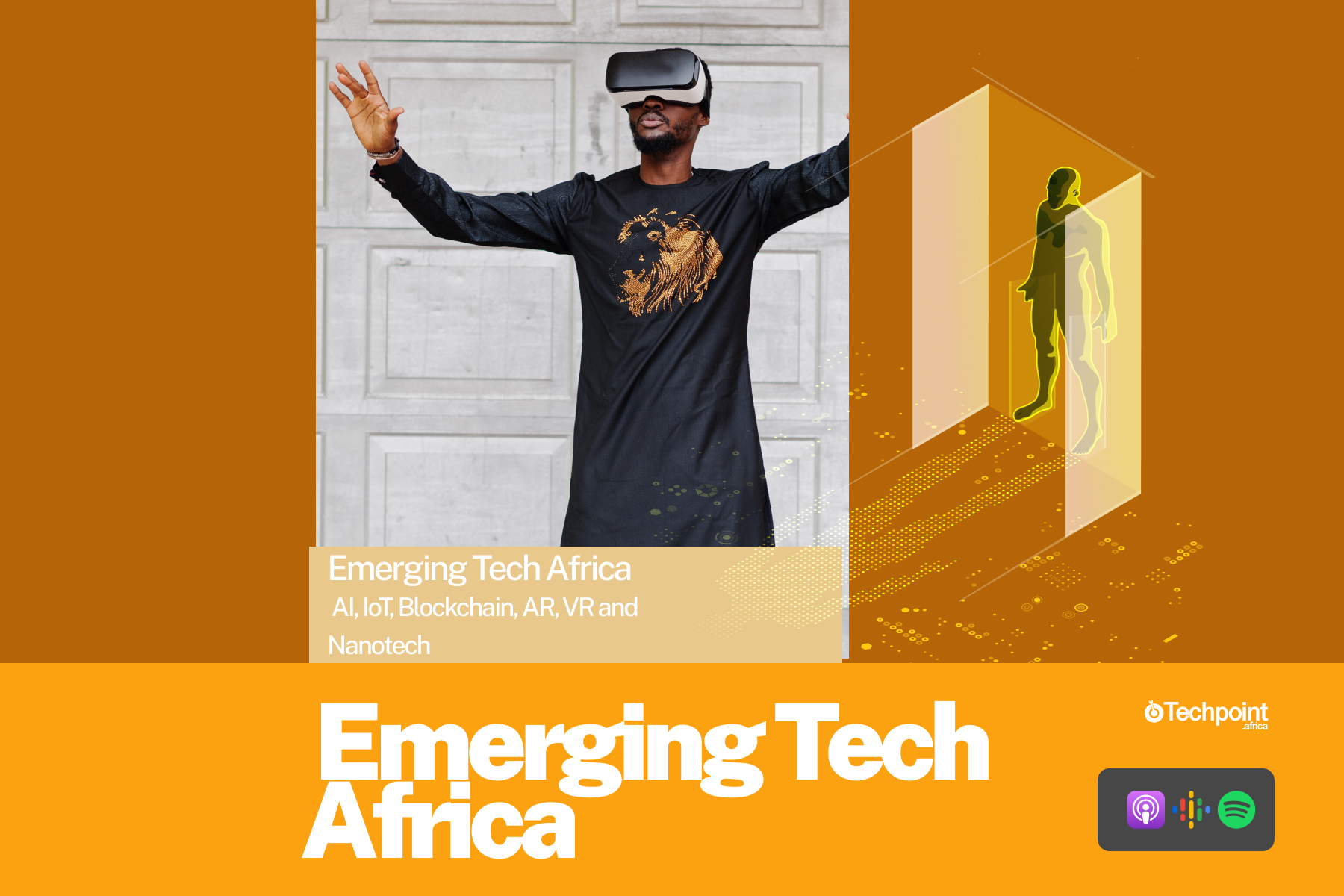From superfast electric trains to self-driving cars and robots resembling things from sci-fi movies, emerging technologies are a captivating side of technology that haven’t gained sufficient recognition, coverage, and development in Africa’s tech ecosystem.
Before I go into why there isn’t enough happening in this area of technology, it is important to understand what emerging technologies are.
Understanding emerging technologies

Emerging technologies (ET) are futuristic tech in the process of developing mainstream and practical use cases. They include blockchain, artificial intelligence (AI), nanotechnology, and biotech; ET is usually still in the concept phase and hasn’t seen mainstream adoption.
They are primarily new technologies, which sometimes include a radical innovation to existing technologies that completely redefine them. ET can be hardware or software but is almost always deep tech that truly disrupts status quos with solutions that are not easy to replicate.
You can argue that companies like Uber and Flutterwave are innovative, and you’ll be correct. However, these companies have only utilised shallow and completely developed tech to create solutions.
An example of Uber as an ET solution could be self-driving cars that pick up riders and respond to voice commands.
However, it is important to note that both forms of tech are equally important, and emerging technologies do not lessen the importance of shallow tech.
The state of emerging tech in Africa
Little is being done in Africa about developing emerging technologies/deep tech. As earlier stated, the emerging tech space is where novel inventions are formed. Alexander Graham Bell’s telephone and Nikola Tesla’s first alternating current (AC) motor fit nicely into this group.
There aren’t many inventions coming out of Africa, and a Statista ranking of countries with the most patent grants did not feature any country from the continent. Interestingly, while China and the USA had 530,127 and 351,993 patent grants, respectively, in 2020, Africa had just over 1,000.
Education is one of many factors contributing to Africa’s small number of patent grants.
In a conversation with Kemisola Bolarinwa, inventor of the Smart Bra that detects early signs of breast cancer, we learnt that building pupils’ interest in STEM (Science Technology Engineering and Mathematics) early facilitates critical thinking, which leads to the creation of innovative technologies.
According to the African Development Bank (AfDB), less than 25% of African students in tertiary institutions pursue a career in STEM. However, people like Bolarinwa prove that Africa has the talent to reinvent the wheel.
Adebayo Alonge, Founder of RxAll — a startup utilising AI, blockchain, and the Internet of Things (IoT) for drug quality authentication — is another example of Africans playing in the ET space.
According to Alonge, his education at the University of Ibadan, Nigeria, was enough for him to acquire STEM knowledge that put him on par with other STEM graduates from US and UK Ivy League institutions.
With innovators like Bolarinwa working towards getting more people, especially women, interested in STEM, some of the greatest technological innovations might just come out of Africa.
But education is only one part of the problem; funding is the other. While African startups attract billions of dollars yearly in funding, little goes to startups building in the emerging tech space. In 2021, 62% of startup funding went to fintechs, while only 8% went to healthtech and biotech.
Commercialisation is another issue that plagues emerging tech startups. While inventing the latest technology is amazing, making it viable and affordable for everyday people is a different breakthrough and innovation.
For context, only a handful of people and corporations could afford the first computers when they were invented. However, owning a computer today is significantly easier.
Why are emerging technologies and deep tech important in Africa?

From a Smart Bra that helps to detect breast cancer to an AI-powered device helping farmers analyse soil and increase yield, emerging tech solves a society’s social and environmental problems.
While a fintech app can provide farmers with insurance and access to credit facilities, getting high-yield harvests and adequate storage facilities is even more crucial.
Emerging technologies also directly tackle issues that affect our very existence. For example, seismometers monitoring and recording earthquake activity could save thousands of lives, and there is ongoing research to make them even more effective in detecting seismic activities.
Startups are not the only ones responsible for bringing about significant emerging tech activity in Africa; governments also have a massive role in making an emerging market like Africa the home of emerging technologies.
In the Emerging Tech Africa Series, I’ll highlight and unearth the amazing discoveries in deep tech to inspire and educate Africans on the importance of emerging technologies.






